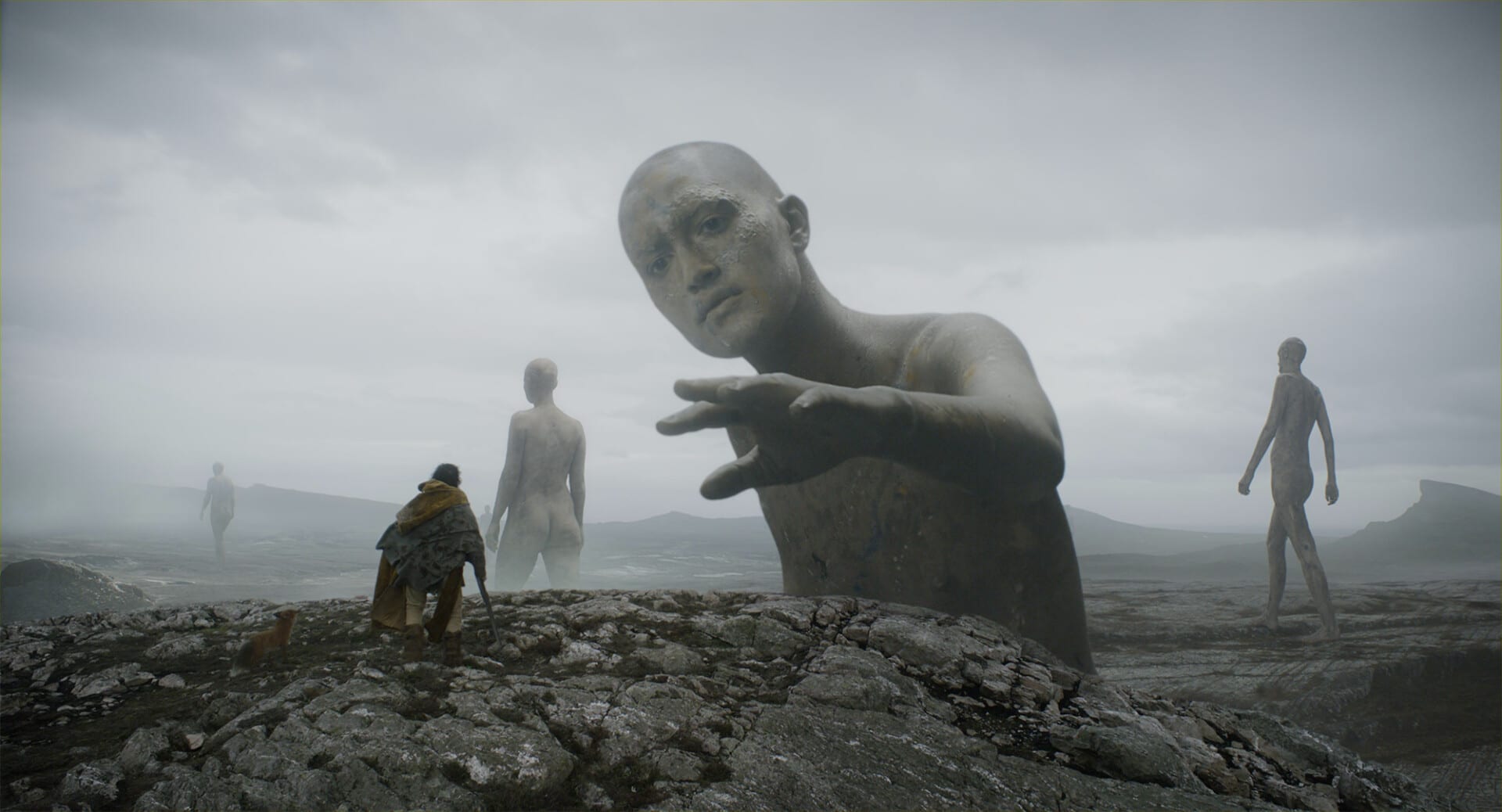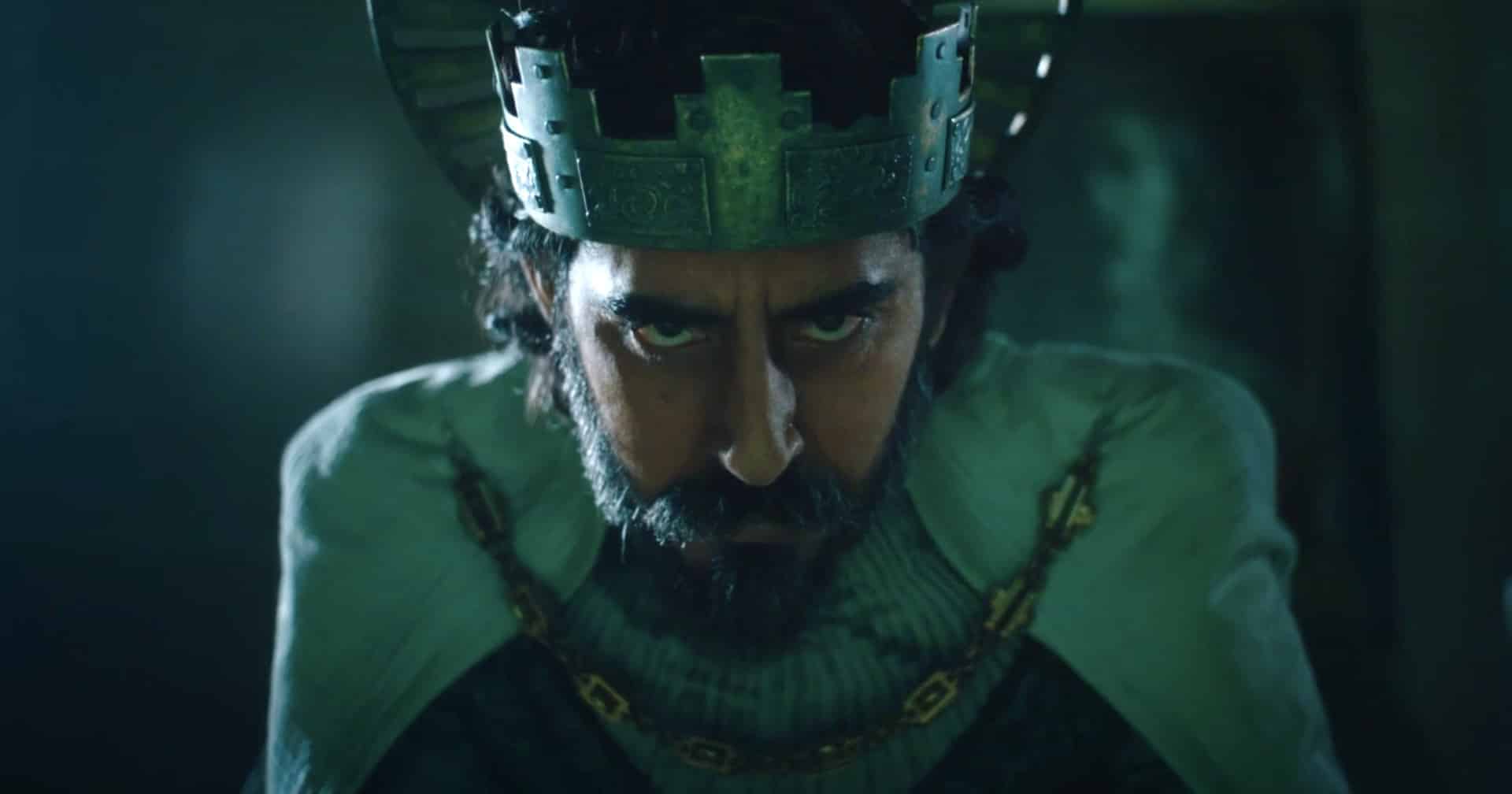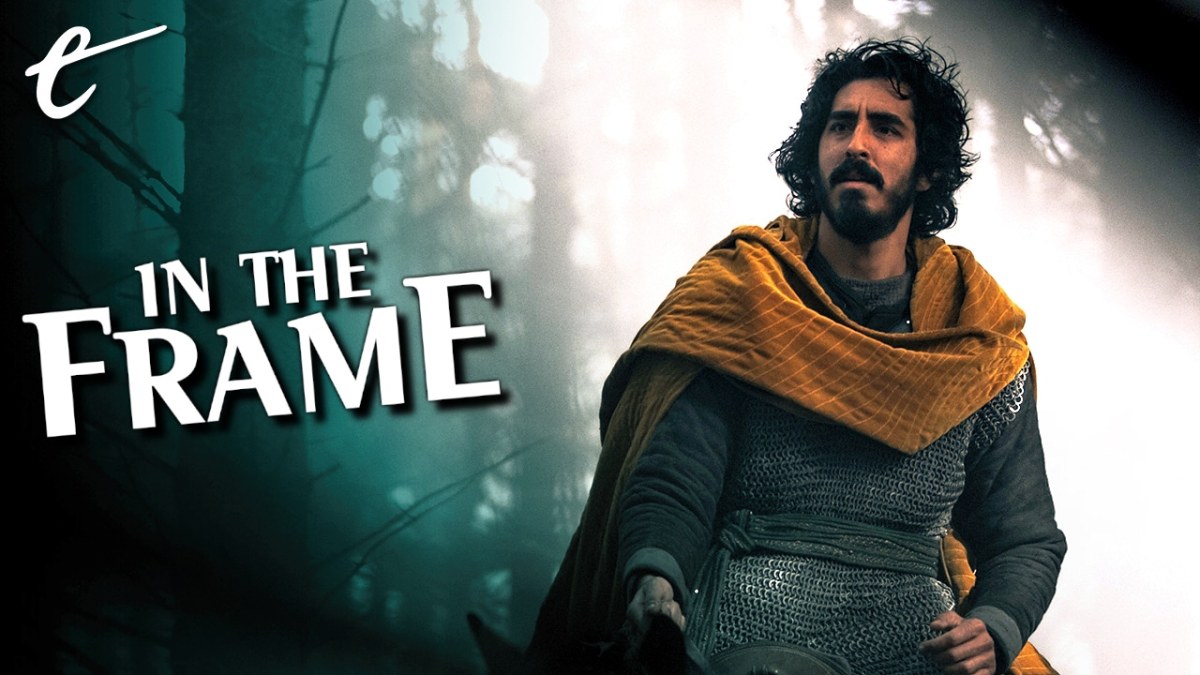It’s that time of year again. Chestnuts roasting on an open fire, snow falling softly outside, and arguments about whether classics like Die Hard or Batman Returns are Christmas movies.
This year, there is a new and interesting entrant into the annual debate about unconventional Christmas movies. David Lowery’s The Green Knight is receiving a limited re-release into theaters. While this is probably also a calculated attempt to remind awards voters that it exists as the end-of-year circuit heats up, it’s a suitably festive choice. The Green Knight is a perfect addition to the weird Christmas canon.
Like other unconventional Christmas classics, The Green Knight was not originally released at Christmas. It was originally scheduled for a May 2020 release, before being pushed back to July 2021. However, the film takes place at Christmas. There are numerous references to the holiday, with the plot’s inciting incident taking place on Christmas Day, as a strange visitor (Ralph Ineson) intrudes upon a gathering of the Knights of the Round Table.
Familiar Christmas themes bubble through The Green Knight. It is a story about family. The movie’s central character, Gawain (Dev Patel), is still living with his mother (Sarita Choudhury) and in the shadow of his uncle, the King (Sean Harris). At that fateful Christmas dinner, the King takes the time to get to know his young nephew and to lament the fact that they have not been closer. “Now it is Christmas, and I wish to build bridges,” the King confesses.
The Green Knight is also a movie that is explicitly about the changing of the seasons and the passage of time. When Gawain accepts the stranger’s challenge, he makes a vow to journey across the kingdom “one year hence.” That year seems to get away from Gawain, with the on-screen text describing it as “a too quick year.” The seasons turn like the wheel in the background of a puppet show, the Yuletide announced with the first winter snows. “Another year nearly gone already,” the King sighs.

However, The Green Knight doesn’t just dabble in the familiar Christmas tropes and iconography. It is a movie that is tied up in the broader history and themes of the holiday. It is explicitly about the collision of pagan ritual and Christian theology in medieval Britain, existing in a liminal space where these two belief systems coexisted with one another. The Christmas setting is just part of a larger thematic tableau.
Christmas can trace its origins to early pagan celebrations of the winter solstice. Even the Christmas tree has its roots in pagan beliefs like the “sacred trees” of Northern European mythology. Although there is some debate among scholars concerning the merits of the claim, it’s possible to draw a clear line between the traditional Roman holiday of Saturnalia and the modern conception of Christmas. In some senses, this argument over Christmas as a Christian holiday continues to the modern day.
These tensions are obvious in The Green Knight. The opening sequence features a poem whispered like a magic spell, played over abstract imagery. After that poetic introduction, the movie’s first lines of dialogue are a repeated declaration that “Christ is born!” The meal to “celebrate the birth of our Christ” is intercut with a pagan ritual to summon the eponymous specter. As Gawain embarks on his journey, he is given an enchanted sash and a shield blessed with holy water.
Throughout The Green Knight, there is a sense that the mystical and magical are fading into memory and beyond that into myth. The movie’s landscape is populated with ruins and fog. At one point, Gawain comes across a percussion of giants, who disappear into the mist and presumably wander out of history. Modernity is fast approaching. At the start of the story, Gawain has a portrait painted to commemorate his heroism. By the end, he has his image captured in a primitive photograph.

Nothing in the world of The Green Knight can last. As Christmas approaches, Gawain stumbles upon the stately house of an anonymous Lord (Joel Edgerton) and Lady (Alicia Vikander). The home is built of concrete but is also changeable. The Lady looks just like Gawain’s beloved, Essel. The library is full of books rewritten by the Lady, changed where she sees fit. Even this concrete is impermanent. As Gawain departs, the Lord warns him, “If you come back by this way again, we shall be gone.”
Although the movie features many iconic characters from Arthurian lore, most remain anonymous as if they’ve already begun to slip into some lacuna. Lowery’s biggest addition to the story is an invented encounter with Saint Winifred (Erin Kellyman), another Christian figure with pagan undertones. Lowery has conceded that he “very pointedly” allowed Winifred to keep her name while refusing to name figures like Arthur, Merlin, or Morgan le Fay.
However, while The Green Knight is set in a world where pagan belief is giving way to Christianity, it suggests that such spirituality is never truly defeated or erased. In some sense, the monster that challenged Gawain is a living embodiment of this pagan magic. “Why is he green, do you think?” the Lord asks Gawain one evening. The Lady suggests that the color reflects his immutability. “Pull it out by the roots one day and then next, there it is, creeping in around the edges,” she remarks.
After all, Gawain’s epic journey takes him to a landmark known only as “the Green Chapel.” In a sequence that recalls the journey down river (and into madness) in Apocalypse Now, Gawain rides a canoe to face his opponent. He comes to a stop in the shadow of a gigantic stone crucifix. The stone is worn and chipped, covered with moss. Gawain’s adversary has made his home in the ruins of an old church, perhaps a reminder that there are some parts of Britain yet to surrender Christianity.

It is appropriate that The Green Knight should explore this push-and-pull between Christianity and paganism. The film is a loose adaptation of the medieval poem Sir Gawain and the Green Knight, a classic piece of Arthurian literature that spent much of its history caught between Celtic paganism and Christian theology. Arthurian legend experienced a similar drift with the introduction of elements like the Holy Grail in Chrétien de Troyes’ 12th century poem Perceval.
Lowery leans into this tension. When the fear of death proves too much for him, Gawain is afforded a vision of what his life might be like if he is unable to meet his obligations. Gawain imagines his entire life laid out ahead of him: succeeding the aging King, marrying for political convenience, losing first a son and then a kingdom to apocalyptic and all-consuming war. It is a life that is long in years, but short on grace. Confronted with that vision, Gawain finds the courage to face his fate.
It is a sequence that many observers have compared to the third act of Martin Scorsese’s The Last Temptation of Christ. Scorsese’s adaptation of Nikos Kazantzakis’ novel was hugely controversial, in large part because of how it explored the boundaries of Christian faith. The film has “a primitive, almost pagan spirituality.” It’s a deliberate invocation from Lowery, who seems to compare Jesus Christ (Willem Dafoe) watching the fall of Jerusalem to Gawain facing the collapse of Camelot.
The Green Knight is a reminder of this interesting tension between Christian theology and the older beliefs that underpin them. Even more than Halloween, this ethereal theme feels particularly tied to Christmas. When the ghost story underwent a revival in Victorian England, it was tied to the holiday; A Christmas Carol was just the first of Charles Dickens’ festive ghost stories. The Green Knight keeps this tradition alive, existing in a space between Christian belief and something more primal.
The Green Knight is a Christmas movie, in a very traditional and very old-fashioned sense.






Published: Dec 13, 2021 11:00 am